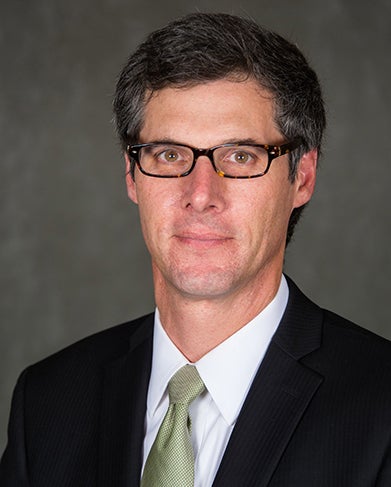Title: Nuclear Deterrence Expert Named Andrew Carnegie Fellow
SFS and government professor Keir Lieber, has been named to the prestigious inaugural class of the Andrew Carnegie Fellowship program by the Carnegie Corporation of New York.

Keir Lieber
Keir Lieber, a Georgetown associate professor, is one of only 32 fellows named by the Carnegie Corporation of New York to the inaugural Andrew Carnegie Fellowship program supporting scholars in the social sciences and humanities.
Lieber, who has a joint appointment in the School of Foreign Service and the Department of Government, is a core faculty member of SFS’ Center for Security Studies and the Security Studies Program.
He researches nuclear weapons, deterrence and strategy, U.S. foreign policy and international relations theory.
Grateful to Georgetown
Chosen from among 300 individuals nominated by leaders of higher education, philanthropy and publishing, the professor will receive $200,000 from the philanthropic organization, which encourages fellows to take sabbaticals and devote themselves to their research and writing.
“I’m grateful to the Carnegie Corporation and to Georgetown, not only for nominating me for the national competition, but also for giving me an institutional home to pursue rigorous scholarship on real-world policy problems,” Lieber says. “Academic work on nuclear weapons and deterrence issues can sometimes seem abstract, but the truth is that the use or threatened use of nuclear weapons in international conflict in the coming decades is a significant danger.”
He said his Georgetown colleagues, university leadership and students have all encouraged his research, either directly with support or indirectly through their interest and excitement.
“Carnegie’s decision to award me this fellowship validates what I know to be Georgetown’s greatest strengths,” Lieber notes.
Nuclear Weapons, Strategic Instability
Lieber will use the fellowship to work on a major research project called “Nuclear Weapons and the New Era of Strategic Instability.”
The project will examine the impact that technological changes and the emergence of relatively smaller nuclear arsenals are having on the prospects for international peace and stability. He argues that these changes have generated new sources of military instability in relations among nuclear-armed countries.
The author of War and the Engineers (Cornell University Press, 2005), and War, Peace and International Political Realism (University of Notre Dame Press, 2009), Lieber is also working on another book, Nuclear Weapons and International Politics, with Dartmouth College associate professor Daryl G. Press.
Solving Complex Issues
The fellowships aim to provide new perspectives on the program’s overarching theme for 2015 – Current and Future Challenges to U.S. Democracy and International Order.
“What impressed me most was the quality of the proposals –they seek to tackle some of the most pressing issues of our times with innovative and forward-looking ideas from a wide range of high-caliber candidates,” said Susan Hockfield, MIT president emerita and juror panel chair. “Solutions to the complex issues of today and tomorrow will not emerge simply through technology and science, but require humanistic and social science understanding to use lessons of the past to devise paths to future peace and progress.”
Lieber is no stranger to scholarly awards. He has previously held fellowships from the Brookings Institution, Council on Foreign Relations, Earhart Foundation, MacArthur Foundation, Mellon Foundation and Smith Richardson Foundation.
Policy Relevant
“Professor Lieber proposes to study the impacts of smaller nuclear arsenals of various nation-states on global stability,” says Provost Robert Groves. “This work will continue his contributions of policy-relevant research that is so central to the mission of Georgetown.”
A professor at Georgetown since 2009, Lieber received his M.A. and Ph.D. in political science from the University of Chicago.